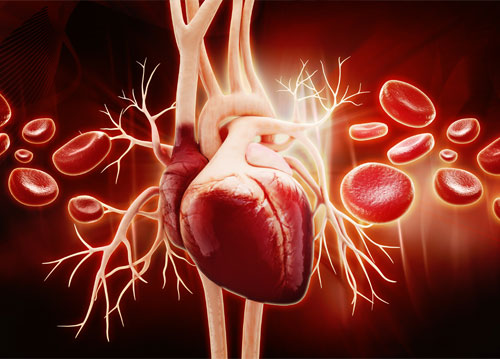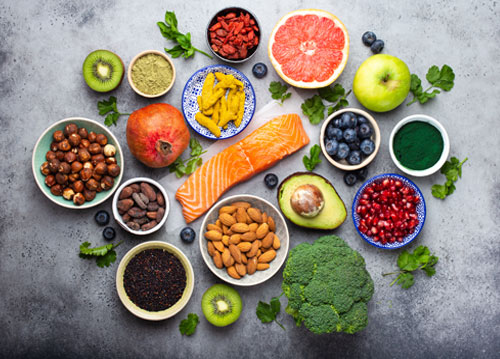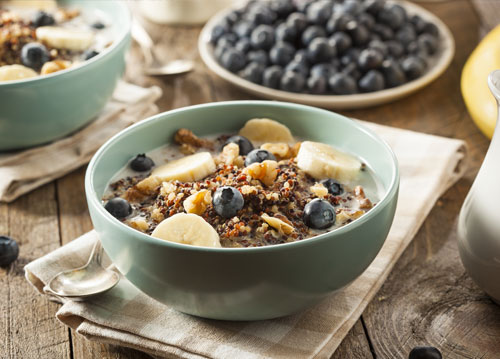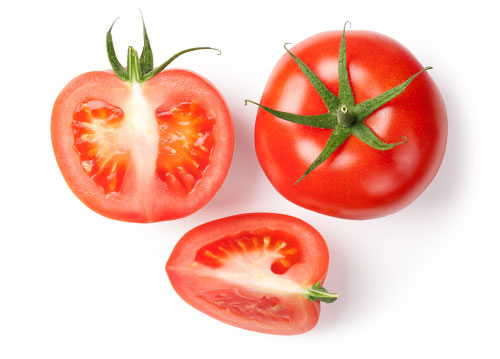Love the beat: Your guide to a healthy heart

Author Gill Shaffer Last updated 4th February 2020
- Health Conditions
Love the beat: Your guide to a healthy heart
Living life to the full is all about making sure we are kind to ourselves. Whether that means taking a Zumba class, enjoying a walk in the woods or going out for a delicious dinner. There are simple things we can do to increase our overall wellbeing.
The British Heart Foundation estimates that around 7.4 million people in the UK are living with some kind of cardiovascular condition. Heart and circulatory issues such as coronary heart disease and strokes cause a quarter of all deaths in the UK, including 44,000 people under the age of 74 every year.
Luckily, many of the things we can do to protect our heart health bring benefits to the whole mind and body – helping to maintain a healthy weight and bringing feelings of wellbeing.
This guide lets you know where to start, from regular exercise to a healthy diet and the key nutrients to include. It’s never too late – and you’ll be helping yourself feel great.
How trouble can start
The heart depends on its own healthy blood supply to keep pumping at an average of 70 beats per minute. As we get older, the coronary arteries that supply it can start to narrow and harden through a build-up of fatty substances into plaques. Called atherosclerosis, this can eventually lead to serious heart health issues, including heart attacks and strokes.

This ‘furring-up’ of the arteries is often caused by lifestyle factors like smoking, a poorly balanced diet and not getting enough exercise. These cause conditions like obesity or being overweight, high cholesterol levels in the blood, high blood pressure and diabetes, all of which can lead to heart problems.
The first steps to a healthy heart
It won’t shock you to hear that a combination of a healthy diet and regular exercise is the most effective route to good heart health, whatever your age.
But the single most important first step you can take is to stop smoking. The chemicals in cigarette smoke put the heart under strain by forcing it to work faster, and can damage and narrow the lining of our arteries. Smoking increases the risk of developing heart disease by a whopping 24%.

It’s a great idea to take advantage of a free NHS Health Check of your overall health, available every five years to everyone aged 40-74. In the first five years after it was introduced in 2009, the Health Check has helped prevent an estimated 2,500 heart attacks or strokes by spotting early warning signs.
Get your heart in the right pace
All those hours sat in front of a screen, on a train or behind a steering wheel... The modern way of life isn’t great for our bodies, which evolved to be active.
Medical studies show that regular physical activity leads us to much healthier and happier lives, reducing the risk of heart disease and stroke by up to 35%, and even depression and dementia by up to 30%.
The most well-known exercise target is a minimum 10,000 steps a day - but that’s not ideal for everyone. You can also follow the NHS recommendation of 150 minutes of moderate intensity exercise each week, with some kind of physical activity every day.

‘Moderate intensity exercise’ includes everything from brisk walking and hiking to riding a bike, dancing, doubles tennis or even pushing a lawnmower. Or you could go for 75 minutes of weekly vigorous exercise like running, fast cycling, singles tennis and swimming.
Exercise will benefit you even if you have a heart condition – just be sure you talk to your doctor about what’s right for you.
But you don’t have to dive into a new sport – even just 10 minutes a day of brisk walking is a good start. The NHS Active 10 app is a great way to build up a new walking habit over time.
Start off easy and make it fun
If you’re not used to exercise, be gentle on yourself. Start by reading our Top Tips for An Exercise Novice. Think of activities that you’re likely to enjoy and stick with: they could even be a good way to socialise, relax and make new friends.

A 2016 study of 48,000 British people aged 40 and older found that moderate-intensity dancing, for example, is linked to a lower risk of dying from cardiovascular disease. It followed a 2011 study which found that dancing can “help boost confidence and mobility in older people” as well as helping to prevent heart disease, osteoporosis and dementia.
Whether it’s playing hide-and-seek with the grandkids in the park, skipping short car journeys in favour of a walk or bike ride, joining a hiking group, playing walking football or taking up aqua aerobics – make your new habit a regular feature in your diary. Over time, it’ll become a normal part of your routine.
Eat your way to a healthy heart

We all know the advice, but many of us still don’t eat balanced diets. We tend to eat too much added sugar, salt and saturated fats, and not enough fruit, veg and oily fish.
But when it comes to heart health, a handful of key ingredients can make a difference. Here’s what to watch out for:
Easy on the salt and sugar
Eating less salt can help reduce your risk of high blood pressure. Think about alternative seasonings like lemon juice or herbs, and cut down on salty snacks like crisps. Check for red traffic lights on food labels. We should be trying to limit ourselves to about 6g of salt a day.
To help maintain a healthy weight, the NHS advises us to limit all the added sugars in our food and drink to about 30g a day, or about 7 sugar cubes.

Fill up on fibre
Just adding more fibre to your diet lowers your risk of heart disease. High-fibre breakfast cereals, whole grain bread, beans, lentils and chickpeas are all great sources of fibre, as well as, of course, lots of fruit and veg.

Go for the good fat
Fat can be your friend. Too much saturated fat can increase the level of cholesterol in the blood. But unsaturated fats can actually reduce cholesterol levels.

It’s a good idea to ease up on foods high in saturated fats, like:
- Butter, cream and cheese
- Meat pies and sausages
- Cakes and biscuits
- Foods with coconut or palm oil
And try more foods high in unsaturated fats, like:
- Oily fish – e.g. mackerel, salmon, sardines and trout
- Nuts like almonds and cashews
- Sunflower and pumpkin seeds
- Vegetable oils and spreads
The NHS recommends a portion of oily fish a week. It doesn’t have to be fresh – canned or smoked fish can be just as good. Steaming, baking or grilling is always healthier than frying.

Love your heart, love your omega-3
Oily fish is also the richest source of a vital nutrient for heart health: long-chain omega-3 fatty acids.
Omega-3 helps reduce atherosclerosis – the narrowing and hardening of blood vessels – helping to maintain normal blood pressure and lowering the risk of heart failure.
Although our bodies can make some of their own omega-3 fatty acids, we have to absorb most from what we eat. And that can be difficult because most of us just don’t eat enough oily fish regularly. Omega-3 is one of the most popular dietary supplements in the UK, taken by around 25% of supplement users.
Read our Definitive Guide to Omega-3 for more on its many benefits and how it works.
Think Mediterranean, think tomato
More oily fish, fruit and vegetables, nuts and unsaturated fats… it sounds a lot like the traditional Mediterranean diet. Rich with olive oil, fish, tomatoes, wholegrain cereals and only modest amounts of meat and dairy, it’s a delicious inspiration for a heart-healthy diet.
One of the reasons is lycopene, the bright red pigment commonly found in tomatoes, and a powerful antioxidant. A high intake of lycopene has been shown to reduce high blood pressure and the risk of heart attacks and cardiovascular diseases.

Lycopene in its raw form is hard for the body to absorb, and it’s easier when cooked in oil. To get an effective dose, we need to eat a large amount of cooked tomatoes every day.You can find out more about lycopene and how it works in our definitive guide.
Go for cocoa
Cocoa contains a unique blend of flavanols that studies have shown to be good for blood pressure and circulation. Where atherosclerosis causes blood vessels to harden and narrow, cocoa flavanols can do the opposite, helping them to dilate and maintain a healthy blood flow.

Chocolate is usually rich in sugars and fat which far outweigh any benefits you might get from any flavanols. You’ll get better results from a high-percentage dark chocolate or cocoa, even more in a pure cocoa flavanols supplement.
Find out more about cocoa flavanols in our definitive guide.
From a short, brisk walk to sprinkling a little less salt, every small step you take to protect your heart is a step in the right direction. Good luck on your journey.
